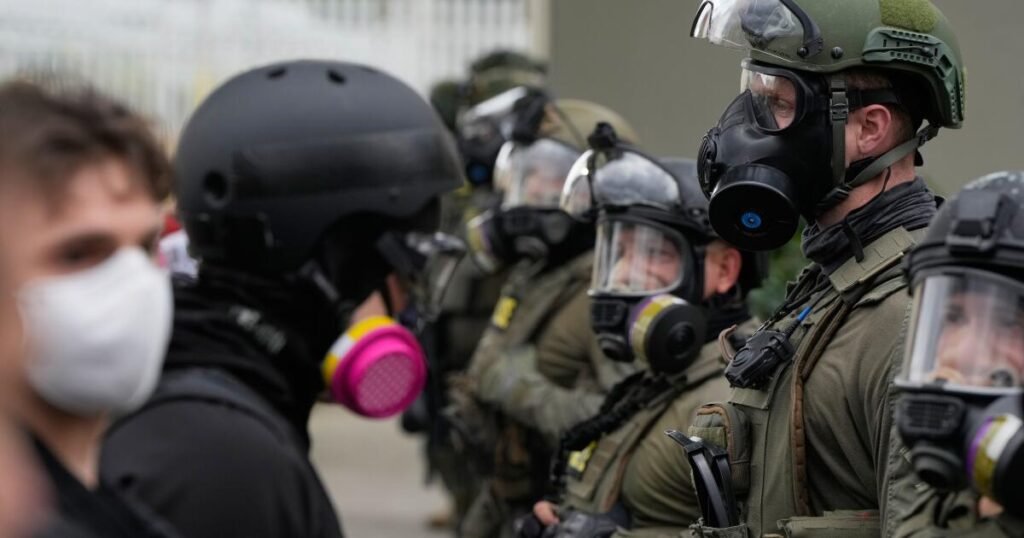Trump’s Ongoing Tensions with the Ninth Circuit
President Trump has frequently faced challenges in the Ninth Circuit Court of Appeals, which has long been viewed as a bastion of liberal resistance to his agenda during his first term.
Despite appointing new judges, he remains entangled with this West Coast circuit, especially regarding his use of the National Guard to maintain order on American streets.
On Sunday, Trump expressed discontent with Judge Kalyn Immergut from Portland, who recently blocked the deployment of federal forces, saying, “I appointed a judge and he did that — I didn’t do well.” He went on to criticize her, stating that such a judge should be “ashamed of himself.”
Throughout his presidency, he has often dismissed judges who ruled against him, labeling some of them as “monsters” or “radicals.” However, his criticism has also extended to some conservative judges, like US Supreme Court Chief Justice John Roberts, whom he called “disgraceful” after failing to overturn the 2020 election results.
This latest incident reflects a shift in Trump’s approach toward his own appointees, indicating he may feel the need to be more selective as he pursues his ambitions in major U.S. cities. Ilya Somin, a law professor at George Mason University, noted that the fact a “conservative judge ruled against him is telling.”
This spring, the Ninth Circuit is expected to provide an initial win for the administration regarding military involvement, emphasizing that the court needs to respect the president and evaluate whether military action is justified based on current circumstances.
However, this ruling may be reviewed by a larger panel, raising the possibility of it being overturned. The court is also re-evaluating a prior decision that prevents California’s federal forces from aiding civil law enforcement, especially concerning temporary restraining orders.
In June, the Ninth Circuit’s ruling prompted Oregon to reassess what it deemed a national effort to integrate military presence within civilian law enforcement. Somin remarked that this decision necessitated significant respect for its implications. However, he added, if the president’s actions diverge too far from reality, that respect may be compromised.
Judge Immergut seemed to share this perspective, highlighting that the conditions in Portland this fall differ substantially from those in Los Angeles during the spring. While some protests had turned violent previously, recent protests in Portland displayed a much calmer atmosphere.
She indicated that the potential for violence in other areas does not warrant troop deployment in this instance, stating that hypothetical concerns do not justify current actions. “The president is entitled to ‘a great level of respect,'” she noted, “but that does not mean ignoring factual realities.”
Experts struggle to pinpoint how far the appeals court can engage with the president’s findings. John C. Dane from Loyola University commented, “How much respect is there for the president? That’s the crux of the matter.” The question hinges on whether the court can examine the president’s judgment alongside some of his most conservative judicial nominees.
Trump’s reliance thus far has been on a niche section of U.S. law that pertains to military involvement in managing protests and immigrant raids. Dane and others criticize this approach as lacking genuine legal interpretation, calling it semantic manipulation of the law.
Immegur echoed this sentiment, affirming that interpreting legal language requires understanding the entire statute. For conservative legal scholars, Trump’s consistent overreach with his appointees might reflect either the limitations of his strategy or a troubling escalation in their efforts to undermine legal scholars who oppose them.
“It’s clear the administration is aiming for a broader impact,” Somin concluded. “Ideally, we shouldn’t rely solely on litigation.”







